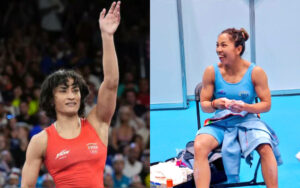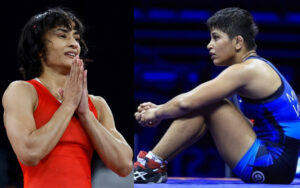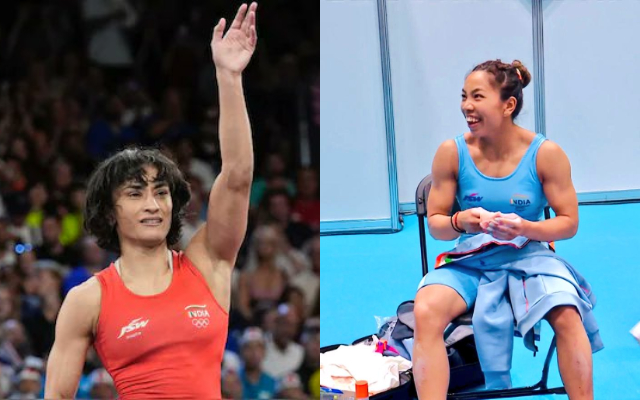
Sport has had a long history as a tool of protest. Historians of sport can tell better than myself of the instances in our struggle against a colonial power when sport became a much larger manifestation, of the struggle and resilience of a colonial people against the colonial masters. A man no less than Swami Vivekananda had called upon colonised Indians to play football and build their physical strength to combat the British.
Mohun Bagan’s victory of 1911, beating the Brits, is national lore, and is still celebrated as a turning moment in the nationalist imaginary. In the popular imaginary of us millennial, the film Lagaan was one such encapsulating moment when we relived the power of sport as an empowerment of the lesser ones — those that needed to rise and fight.
One thing to note here — in the time of the Mohun Bagan victory, sport was a movement for men —while only a few ladies, especially those of the forward thinking Parsi community or some from the missionary schools had indulged in sporting activities. Sport as a movement for Indian women came much later. Even in Lagaan, the team cobbled together as a symbol of resistance against tyranny and oppression is a men’s team.
Times changed in the new millennium when women’s sport gathered momentum and women cricketers and women footballers became a reality and took it up as a sustainable career option.
For the Latest Sports News: Click Here

In other sports like tennis and badminton, and then wrestling and boxing, women sports stars were created. After 2010, sport grew as a symbol of the nation’s soft power, be it the IPL or Neeraj Chopra’s gold at the Tokyo Olympics, and that’s where it stands today. At the just concluded Olympic Games, India House in the Park of Nations playing host to dignitaries and athletes, showcased every bit of that soft power.
And yet, beyond the realm of elite athletes sport stays as a tool of protest, for men and women. Many women that would otherwise never have dared to think of getting into a pair of shorts, now dare to dream big, look beyond marriage prospects and earn their own living. I have Rani Rampal’s voice in my ears — her story and her struggle against her society, and all through the sport that she dared to play. I think of rugby player Hupi Majhi, who made it into the national team against extreme odds.
It’s this idea of sport as a means of protest that needs to stay us this Independence Day — no matter which strata of society we belong to, and where we aspire to go with sport, and whether we are athletes, or sports lovers or journalists covering sporting events.
Even as we showcase our sport as soft power and lay out world class facilities for our top athletes, the entire country rises this morning to the shame of the rape and killing of a doctor in Kolkata, after several days of protests all over the country. No, don’t tell me the two issues are not related — that I’m dragging politics into sport.

Politics was always in sport and Mohun Bagan’s 1911 victory counting as a nationalist emblem stands testimony to that. Let more girls take up sport as protest, against a society that tells them not to wear shorts, that tells them if they play in shorts they will attract the wrong kind of attention. Let more girls get their bodies strong and war ready by playing sport. Let sport be as political as ever in overturning stereotypes and attitudes, that have made this year’s dawn of this august day one mixed with such sadness and shame, and so much fear around our girls.
Let sport be more than medals for India, let it be a means to constantly equalise and overturn injustices.
Also Read: The Vinesh Phogat dilemma: What’s at stake and what’s the price to pay?




